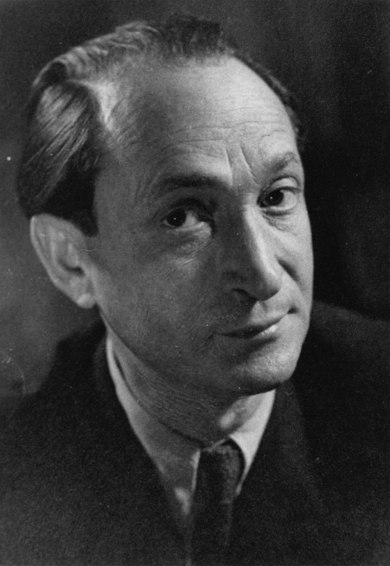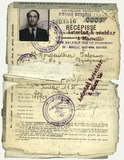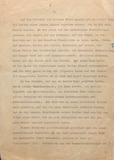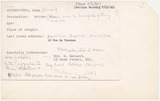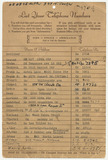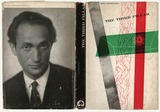Soma Morgenstern
Soma Morgenstern
Das alles ändert nichts an der Tatsache, daß ich mich seit einigen Jahren schon – ich weiß nicht genau, wann es angefangen hat – als ein Schriftsteller ohne Sprache fühle. Ich habe mich in die Deutschen so verhaßt, daß ich auch die deutsche Sprache nicht lieben kann. Und ein Schriftsteller, der seine Sprache nicht liebt, hat keine Sprache.
[All of that did nothing to change the fact that, for many years now – and I don’t know any more exactly when it began – I have felt like a writer without language. I have come to hate the Germans so much that I can’t even love the German language. And an author who does not love his language has no language. (ed. trans.)]
Soma Morgenstern in Amerikanisches Tagebuch 1949, published in 2001
| Born | on 3 May 1890 in Budaniw, Austria-Hungary, now Ukraine |
|---|---|
| Died | on 17 April 1976 in New York, United States of America |
| Exile | France, United States of America |
| Profession | Writer, Journalist |
The author Soma Morgenstern was already interested in literature, theatre, music and art as a child. He grew up in East Galicia, lived from on 1912 in Vienna, studied Law there and in Lviv and was a Lieutenant in the First World War. As a freelance writer and journalist, he also translated and wrote plays, reports, reviews, critiques and short pieces of prose for publications like the newspaper Frankfurter Zeitung. His literary works also include novels, featured articles and memoirs.
As Soma Morgenstern had criticised the Nazis and was Jewish, he fled in 1938 upon Austria’s annexation, initially to Paris. He lived there in the same hotel as the writer Joseph Roth. When World War II broke out, he was interned in various camps as a “foreign enemy” before managing to escape to unoccupied southern France. From there he was able to reach New York in April 1941. With the exception of short trips, Morgenstern never returned to Europe.
Morgenstern’s work deals with being Jewish and with life in East Galicia, but his literary memoirs are very much influenced by the theme of exile. His work is also marked throughout by an examination of language. Despite his critical treatment of the German language, the author remained with his native language all his life. Morgenstern’s work was largely unknown for a long time in the German-language region and did not enjoy more popularity until after his death, when an extensive special edition of his works was published.
Selected works:
Sparks in the Abyss: The Son of the Lost Son (orig.: Funken im Abgrund: Sohn des verlorenen Sohnes, novel, 1935, transl. 1946)
Sparks in the Abyss: In my Father’s Past (orig.: Funken im Abgrund: Idyll im Exil, novel, transl. 1947)
Sparks in the Abyss: The Testament of the Lost Son (orig.: Funken im Abgrund: Das Vermächtnis des verlorenen Sohnes, novel, transl. 1950)
The Third Pillar (orig.: Die Blutsäule. Zeichen und Wunder am Sereth, novel, transl. 1955)
Joseph Roths Flucht und Ende. Erinnerungen (posthumously, 1994)
Alban Berg und seine Idole. Erinnerungen und Briefe (posthumously, 1995)
Flucht in Frankreich. Ein Romanbericht (posthumously, 1998)
Further reading:
Asmus, Sylvia / Lunzer, Heinz / Lunzer-Talos, Victoria (Hg.): So wurde ihnen die Flucht zur Heimat. Soma Morgenstern und Joseph Roth. Eine Freundschaft. Bonn: Weidle 2012
Deutsche Intellektuelle im Exil. Ihre Akademie und die „American Guild for German Cultural Freedom“. Eine Ausstellung des Deutschen Exilarchivs 1933-1945 der Deutschen Nationalbibliothek, Frankfurt am Main. [Ausstellung und Katalog: Werner Berthold, Brita Eckert und Frank Wende] München: Saur 1993

